Devakumar Edwin, vice-president, oil and gas at Dangote Industries Limited (DIL), has accused international oil companies (IOCs) in Nigeria of doing everything to frustrate the survival of Dangote Oil Refinery and Petrochemicals.
According to Edwin, the IOCs are purposefully undermining the refinery’s attempts to purchase local crude by inflating the price of crude oil over the going rate.
This forces the refinery to import crude from other nations, including the US, at exorbitant costs. Edwin addressed reporters during a recent Dangote Group one-day training event.
He also lamented the activity of the Nigerian Midstream and Downstream Petroleum Regulatory Authority (NMDPRA) in granting licences indiscriminately to marketers to “import dirty refined products into the country”.
“The Federal Government issued 25 licences to build refinery and we are the only one that delivered on promise. In effect, we deserve every support from the Government,” the vice-president said.
“It is good to note that from the start of production, more than 3.5 billion litres, which represents 90 per cent of our production, have been exported. We are calling on the Federal Government and regulators to give us the necessary support in order to create jobs and prosperity for the nation.
“While the Nigerian Upstream Petroleum Regulatory Commission (NUPRC) are trying their best to allocate the crude for us, the IOCs are deliberately and willfully frustrating our efforts to buy the local crude.
“It would be recalled that the NUPRC, recently met with crude oil producers as well as refinery owners in Nigeria, in a bid to ensure full adherence to Domestic Crude Oil Supply Obligations (DCSO), as enunciated under section 109(2) of the Petroleum Industry Act (PIA).
“It seems that the IOCs’ objective is to ensure that our Petroleum Refinery fails. It is either they are deliberately asking for ridiculous/humongous premium or, they simply state that crude is not available. At some point, we paid $6 over and above the market price.
“This has forced us to reduce our output as well as import crude from countries as far as the US, increasing our cost of production.
“It appears that the objective of the IOCs is to ensure that Nigeria remains a country which exports crude oil and imports refined petroleum products.
“They (IOCs) are keen on exporting the raw materials to their home countries, creating employment and wealth for their countries, adding to their GDP, and dumping the expensive refined products into Nigeria – thus making us dependent on imported products.”
Edwin further said the strategy of the multinationals has been adopted in every commodity, making Nigeria and sub-Saharan Africa face unemployment and poverty, adding that “they create wealth for themselves at our expense”.
“This is exploitation — pure and simple. Unfortunately, the country is also playing into their hands by continuing to issue import licences, at the expense of our economy and at the cost of the health of the Nigerians who are exposed to carcinogenic products,” he added.
“In spite of the fact that we are producing and bringing out diesel into the market, complying with ECOWAS regulations and standards, licences are being issued, in large quantities, to traders who are buying the extremely high sulphur diesel from Russia and dumping it in the Nigerian Market.
“Since the US, EU and UK imposed a Price Cap Scheme from 5th February 2023 on Russian Petroleum Products, a large number of vessels are waiting near Togo with Russian ultra-high sulphur diesel and, they are being purchased and dumped into the Nigerian Market.
“In fact, some of the European countries were so alarmed about the carcinogenic effect of the extra high sulphur diesel being dumped into the Nigerian Market that countries like Belgium and the Netherlands imposed a ban on such fuel being exported from its country, into West Africa, recently.”
Edwin said it is sad that the country is giving import licences for “such dirty diesel to be imported into Nigeria when we have “more than adequate petroleum refining capacity locally.”
According to the vice-president, the decision of the NMDPRA to grant licences indiscriminately for the importation of dirty diesel and aviation fuel has made the Dangote refinery to expand into foreign markets.
He said the refinery has recently exported diesel and aviation fuel to Europe and other parts of the world because the refinery meets international standards as well as complies with stringent guidelines and regulations to protect the local environment.
“The same industry players fought us for crashing the price of diesel and aviation fuel, but our aim, as I have said earlier, is to grow our economy,” Edwin said.
“Recently, the government of Ghana, through legislation has banned the importation of highly contaminated diesel and PMS into their county. It is regrettable that, in Nigeria, import licences are granted despite knowing that we have the capacity to produce nearly double the amount of products needed in Nigeria and even export the surplus. Since January 2021, ECOWAS regulations have prohibited the import of highly contaminated diesel into the region.”
Edwin appealed to the federal government and the national assembly to urgently intervene for speedy implementation of the PIA and to ensure the interests of Nigeria and Nigerians are protected.

 BIG STORY4 days ago
BIG STORY4 days ago
 BIG STORY2 days ago
BIG STORY2 days ago
 BIG STORY4 days ago
BIG STORY4 days ago
 BIG STORY2 days ago
BIG STORY2 days ago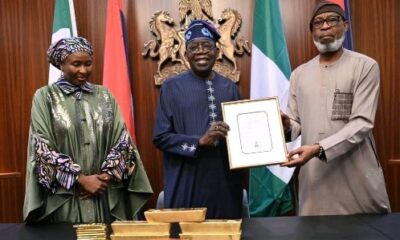
 BIG STORY5 days ago
BIG STORY5 days ago
 BIG STORY5 days ago
BIG STORY5 days ago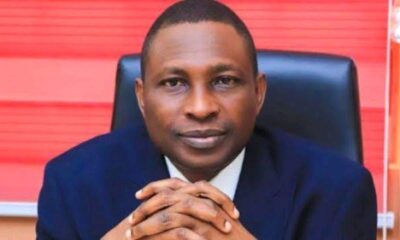
 BIG STORY18 hours ago
BIG STORY18 hours ago
 BIG STORY5 days ago
BIG STORY5 days ago

















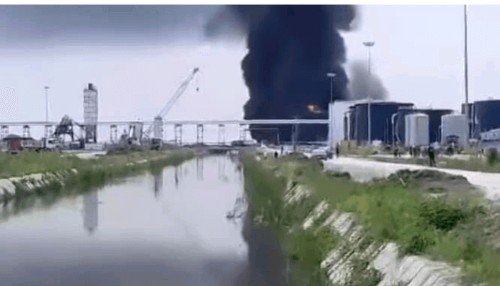
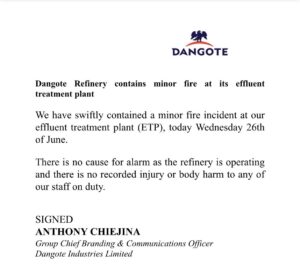
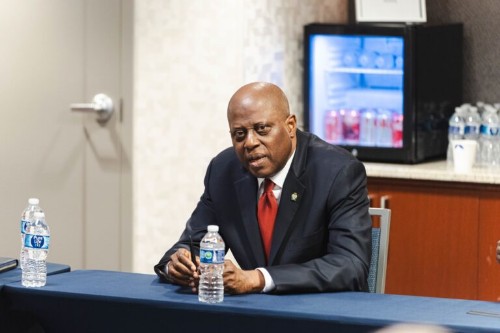

Pingback: Nigerian Banks And Security Control; My Nigerian Experience By A Ghanaian – 9jacable